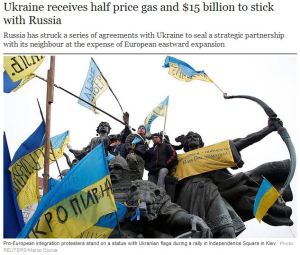Spent the morning reading Petrostate by Marshall Goldman, and look what I find in my news feed: “Ukraine receives half price gas and $15 billion to stick with Russia.” Reminds us all that infrastructure (and control over infrastructure) is politics by other means. As Goldman mentions in the book (I’m paraphrasing): Who wants/needs nuclear weapons, when there is no mutually-assured destruction to curb the use of petroleum and natural gas!?
Stef wrote something about this recently too, but not about pipelines. Along these lines, I’m in the middle of reviewing Andrew Barry’s new book (about pipeline infrastructure and politics from a geography angle) for Science Technology ans Society (the EASST journal).

the snow?
LikeLike
LikeLike
is there some rhyme or reason tho as to what to foreground?
LikeLike
http://www.cbc.ca/spark/full-interviews/2012/06/12/full-interview-andrew-blum-on-the-physical-structure-of-the-internet/
LikeLike
When Nick and I chatted about my post (tech is politics by other means) we were very much trying to pull out Foucault’s inversion of Clausewitz’s dictum “War is politics by other means to Politics as war by other means” as a way to highlight the struggles and violences that get hidden in what is called “politics”. You are absolutely right to say there is not set of neutral politics that we can refer back to, but we do need to reflect on what is often just under the surface of the frameworks and institutions that we make (and demand) these claims within.
LikeLike
No doubt; seems like something MIT would be interested in, but they have done a bunch of IT stuff lately.
LikeLike
These material issues–technology, pipelines, etc– would make a great book series.
LikeLike
Oh, indeed, I appreciate that line of thinking, no doubt. The question here is, which is the rook and which is the Queen (permit me this chess metaphor, I apologize). Is the infrastructure the power and the politics follow, or is this foremost political and the pipeline is tertiary?
LikeLike
One somewhat nitpicky issue with this: saying ‘politics by other means’ implies that there is a conventional set of political techniques that are augmented by ‘extras’ like this pipeline bribe. But that’s what this is, a bribe. And isn’t bribery a pretty classic political move? It’s not so much politics by other means as (international) politics as usual.
In other words, what are the means to which *these* means are ‘other’?
LikeLike
Ah, I see your point … hmmm, but where does that put Putin?
LikeLike
well we could be recording the uses and abuses of structures for the sake of recording them (like old fashioned naturalists or archivists) , for entertainment purposes (http://99percentinvisible.org/), or we could be doing so with some other, more directly/actively civic goal in mind.
LikeLike
With respect to the “wider role of activism” … what do you mean there? (like using infrastructure for this purpose?)
LikeLike
Well, I wrote about this once: https://www.academia.edu/4434032/Review_of_The_Tea_Party_and_the_Remaking_of_Republican_Conservatism
LikeLike
not sure that they are as much an anomaly as perhaps a somewhat predictable outcome of generational/electoral politics, wasn’t questioning the analysis just wondering what the point/use is, not directed just at your project really questioning the wider potentials/roles of analysis/activism.
LikeLike
Teapartyiers are an anomaly that I’d like to hear an explanation for. Their deadset agenda to reduce spending on infrastructure is painful; still, the point holds either direction, the creation of infrastructure or its lack of maintenance are both avenues for “doing politics” without it being obviously political to the masses.
LikeLike
riddle-me this here in Omaha Nebraska, as it was in Kansas and down in Memphis, the place is literally falling apart; crumbling roads, bridges, sewers, sidewalks, etc and yet we just voted in a madteapartier mayor who lives to cut taxes for those who own property and corporations and is dead-set on dismantling what skeletal planning the last mayor patched together, so if voters can’t put together (or even recognize) the literal decline of their environs and their economic commitments/futures what hope is there and how would it be instrumentalized? Or are we just in the business (so to speak) of cataloging the plundering and collapses?
LikeLike